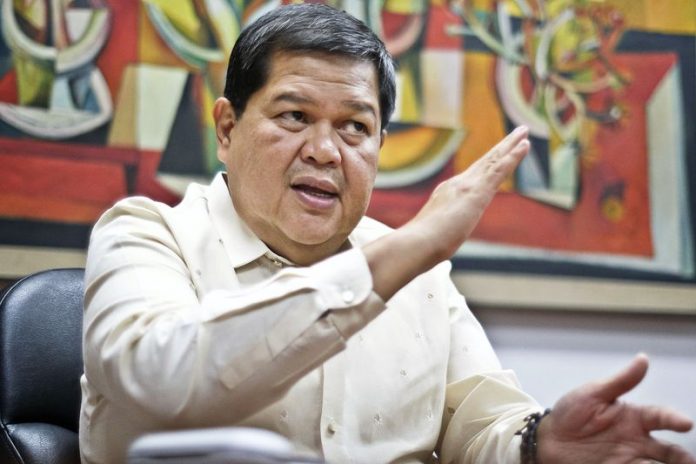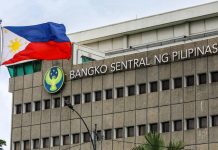
MANILA – Inflation is seen to reach its highest level sometime during the July to September period of this year and ease within the government’s target range of 2 to 4 percent next year, Bangko Sentral ng Pilipinas governor Nestor Espenilla Jr. said Tuesday.
“Inflation is expected to remain elevated in 2018 with the peak occurring sometime in the third quarter,” Espenilla said during the second Economic Journalists Association of the Philippines forum in Manila.
He cited higher excise taxes on tobacco products, and higher global oil prices as “transitory” upside factors for faster inflation.
The BSP earlier said it expects inflation to clock in at 4.9 percent this year, faster than its earlier forecast of 4.5 percent.
“Nevertheless, we expect inflation to revert to inflation target of 2 to 4 percent in 2019,” Espenilla said, noting that transitory factors will dissipate towards next year.
Inflation clocked in at 5.7 percent in July, the fastest rate in at least five years.
Executive measures
Meanwhile, the Malacañang highlighted measures taken by the government to cushion the impact of spiraling prices of basic commodities.
Presidential spokesperson Harry Roque said these include allowing importation of galunggong or round scad, temporary suspension of Special Safeguard Measures (SSM) on chicken meat imports, and closely monitoring the importation of minimum access volume (MAV) quota for pork.
The government will also conduct regular inspection of commodity importers’ warehouses to determine level of inventory with respect to vegetable products such as garlic and onion and closely monitor the arrival and distribution of rice importations of the National Food Authority.
Roque also said the roll out of fuel subsidies for public utility jeepney operators nationwide began on Tuesday.
The measures were consolidated during the dialogue on August 16 between the economic managers and representatives of different government agencies, including the Department of Agriculture, the Department of Agrarian Reform, the Department of Labor and Employment, the Department of Foreign Affairs, and the Tariff Commission.
Roque said that during the dialogue the officials decided against pushing for an executive order aimed at lowering the tariffs on some food products.
“Nagkaroon po sila ng desisyon, ang pagbaba po ng taripa ay hindi talaga magbababa ng mga halaga ng mga bilihin, lalo na ang mga pagkain,” Roque said at a news conference.
Tariffs, interest rates
Senators earlier asked economic managers to think about the implication of lowering tariffs, warning that local farmers, hog and fowl raisers will also suffer since they may not be able to compete considering the high cost of production.
Budget secretary Benjamin Diokno had said it was Speaker Gloria Macapagal-Arroyo who made the suggestion to President Rodrigo Duterte to issue an EO (executive order) to cut tariffs on fish, corn, and meat imports to temper inflation, which climbed to a new five-year high of 5.7 percent in July.
The Customs Modernization and Tariff Act (Republic Act 10863) empowers the President to increase, decrease or remove tariffs only when Congress is not in session.
The accelerating inflation has also prompted the BSP to raise its key policy rates thrice so far this year for a total of 100 basis points.
It hiked policy rates by 50 basis points in August after tightening policy rates by 25 basis points each in May and in June.
Asked if the central bank will implement more rate hikes, Espenilla said, “It’s very hard to commit at this point.”
However, he said that sustained economic growth suggests the country can accommodate further policy tightening.
“BSP stands ready to act as necessary,” the central bank chief said. (GMA News)







